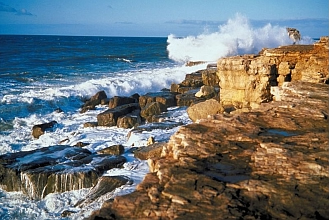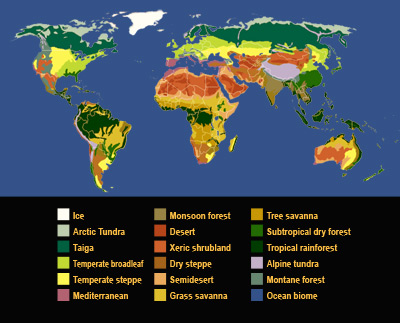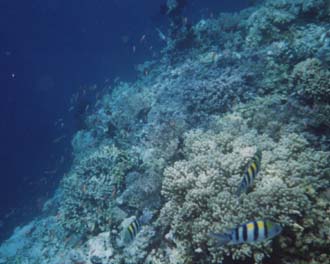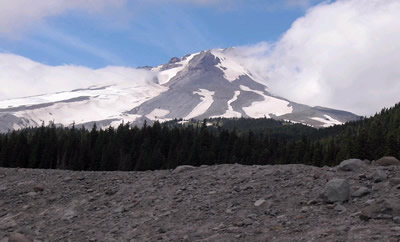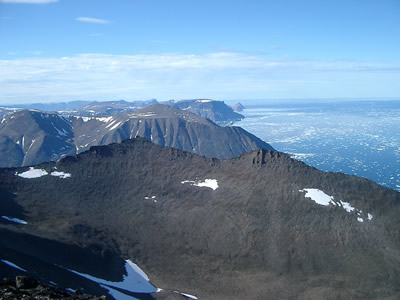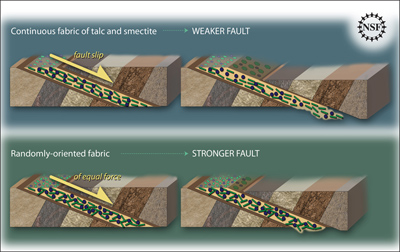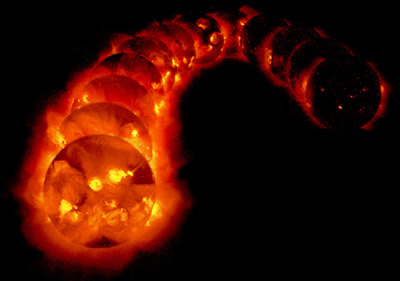Click on image for full size
Jupiter Images/National Science Foundation
Acid Rain Has Greater Impact on Coastal Ocean Waters
News story originally written on September 7, 2007
Acid rain plays a small role in making the world's oceans more acidic. But new research has found that acid rain has a much bigger impact on the coastal sections of the ocean. Acid rain is caused by pollution in the atmosphere from power plants, cars, farming, and ranching.
When coastal areas become more acidic, marine animals such as sea urchins, corals, and certain types of planktons have a hard time creating exoskeletons (their hard outer shells). Because these animals are an important food source for other animals in the ocean, if they don't survive the food chain of the entire ocean ecosystem could be affected.
Scott Doney is a scientist on a team that has been looking into the affects of acid rain on the ocean and coastal areas. "Acid rain isn't just a problem of the land; it's also affecting the ocean," said Scott Doney. He added thar the problems from acid rain are the worst near the coasts. Coastal areas are vunerable because they have already been damaged by pollution, overfishing and climate change.
Also, phytoplankton and other ocean plants become overgrown when there is more acid in the oceans. When this happens, there are more areas of the ocean that don't have enough oxygen in them for plants and animals to live.
When doing their study, the research team built models of the ocean and the atmosphere to see where acid rain will probably have the biggest impact. They compared the results of their model with field observations other scientists made in coastal waters around the United States.


